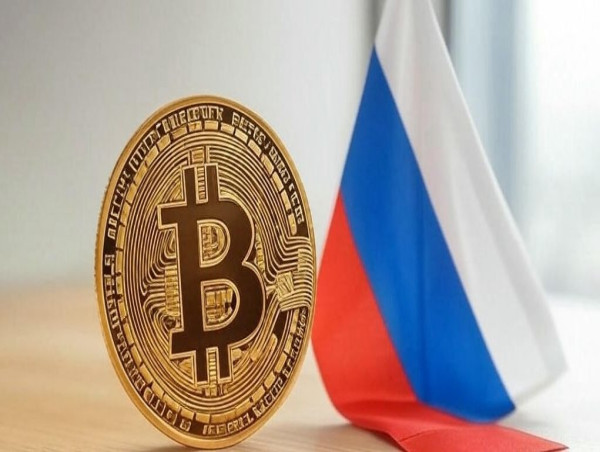Russia’s position on cryptocurrencies has undergone a significant shift in recent years, moving from strict opposition to a more nuanced and strategic approach.
Once advocating a total ban on digital assets, the Bank of Russia is now proposing a regulatory framework that would permit wealthy individuals to invest in cryptocurrencies.
The shift is notable given the stance Russia’s central bank took in early 2022 when it published its first report on cryptocurrency market regulation for discussion with the market called “Cryptocurrencies: Trends, Risks, Measures.”
At the time, the regulator, led by Governor Elvira Nabiullina, pushed for an outright prohibition on cryptocurrencies, citing their use in illicit activities and financial instability risks.
“We cannot welcome investments in such assets. Cryptocurrencies are often used for illegal criminal transactions, they are not transparent,” she
said at a press conference on December 17, 2021.
However, the geopolitical landscape shifted dramatically with Russia’s full-scale invasion of Ukraine, leading to unprecedented Western sanctions that isolated the nation from traditional financial systems.
In response, Russian authorities began to reassess their position on cryptocurrencies, recognizing their potential to circumvent economic restrictions and facilitate international trade.
Legalizing crypto for international trade
In July 2024, Russia took a landmark step by legalizing cryptocurrency for international payments.
As the country grappled with financial isolation due to sanctions, the State Duma approved legislation permitting businesses to use cryptocurrencies in cross-border trade.
“We are taking a historic decision in the financial sphere,” said Anatoly Aksakov, the head of the Duma, in support of the measure.
The move was widely seen as an effort to maintain crucial trade ties with China, Turkey, and other partners despite US and European restrictions.
Mati Greenspan, CEO of crypto research firm Quantum Economics, noted that Russia’s pivot toward digital assets was inevitable as bitcoin transactions “cannot be censored or blocked by any government or bank.”
“Previously, Russia would not want to allow that kind of transactional freedom to its citizens — but now we’re at the point that bitcoin is used so often in every day commerce that the opportunity cost for them not to allow it is simply too great,” he added.
With legislative backing, Russian firms began leveraging cryptocurrencies like Bitcoin and Tether in foreign trade, particularly for energy exports.
According to Finance Minister Anton Siluanov, several companies had already incorporated digital currencies into international transactions by late 2024.
Cryptocurrency mining gains legitimacy
Another key aspect of Russia’s evolving crypto strategy was the legalization of cryptocurrency mining, effective from November 1, 2024.
The new law allowed registered entities and individual entrepreneurs to engage in mining activities while placing specific energy consumption limits on unregistered operators.
This development marked another significant departure from Russia’s earlier skepticism about digital assets, as it recognized the economic potential of mining in generating revenue and maintaining global relevance in the crypto sector.
Additionally, the legislation established an experimental regime under which the Bank of Russia could grant select companies permission to conduct cross-border settlements and trade in digital currencies.
This signalled an important step toward the regulated integration of digital assets into the broader financial system.
Crypto payments for oil trade
By early 2025, reports emerged that Russia had begun using cryptocurrencies for oil transactions with China and India, effectively bypassing Western sanctions.
Sources familiar with the matter told Reuters that Russian energy firms had facilitated payments in digital assets, leveraging crypto to convert Chinese yuan and Indian rupees into rubles.
The report suggested that even if sanctions were lifted, Russia might continue using crypto in its oil trade due to the flexibility and convenience it offers.
Exclusive investment opportunities for wealthy individuals
In March 2025, Russia took another step in its crypto evolution by proposing an experimental legal regime (ELR) that would allow a “limited group of Russian investors” to engage in cryptocurrency trading.
Under this proposal, only “particularly qualified” investors—defined as individuals with securities and deposit investments exceeding 100 million rubles ($1.15 million) or an annual income above 50 million rubles ($570,000)—would be permitted to participate.
The central bank, which had long resisted crypto adoption, justified the initiative as a means to improve market transparency while maintaining strict oversight.
Financial institutions looking to engage in crypto investments would also be subject to specific regulatory requirements tailored to the risks associated with digital assets.
Regulatory hurdles persist
Despite these progressive steps, Russia’s crypto landscape remains fraught with challenges.
In February 2025, the country’s communications regulator, Roskomnadzor, blocked access to the cryptocurrency exchange platform BestChange, citing unspecified legal violations.
The move highlighted the ongoing tensions between regulatory authorities and the crypto sector as Russia seeks to strike a balance between innovation and control.
Meanwhile, the future of the digital ruble—Russia’s central bank digital currency (CBDC)—remains uncertain.
Initially slated for rollout in July 2025, the digital ruble project has faced delays amid internal debates over its integration with existing financial structures.
A strategic shift with global implications
Russia’s strategic pivot toward cryptocurrencies carries significant global implications.
By embracing digital assets for international trade and proposing regulated investment frameworks, Russia is positioning itself to mitigate the impact of Western sanctions and reduce reliance on traditional financial systems.
This approach mirrors tactics employed by other sanctioned nations, such as Iran and Venezuela, highlighting a broader trend of utilizing cryptocurrencies to navigate economic restrictions.
However, experts caution that while cryptocurrencies offer alternative avenues for trade and investment, their current market liquidity may be insufficient to fully offset the effects of large-scale sanctions.
Additionally, the acceptance of cryptocurrencies by other countries remains uncertain, influenced by existing laws and pressures from Western financial regulators.
The post From skepticism to strategic adoption: how Russia is reshaping its cryptocurrency policy appeared first on Invezz





